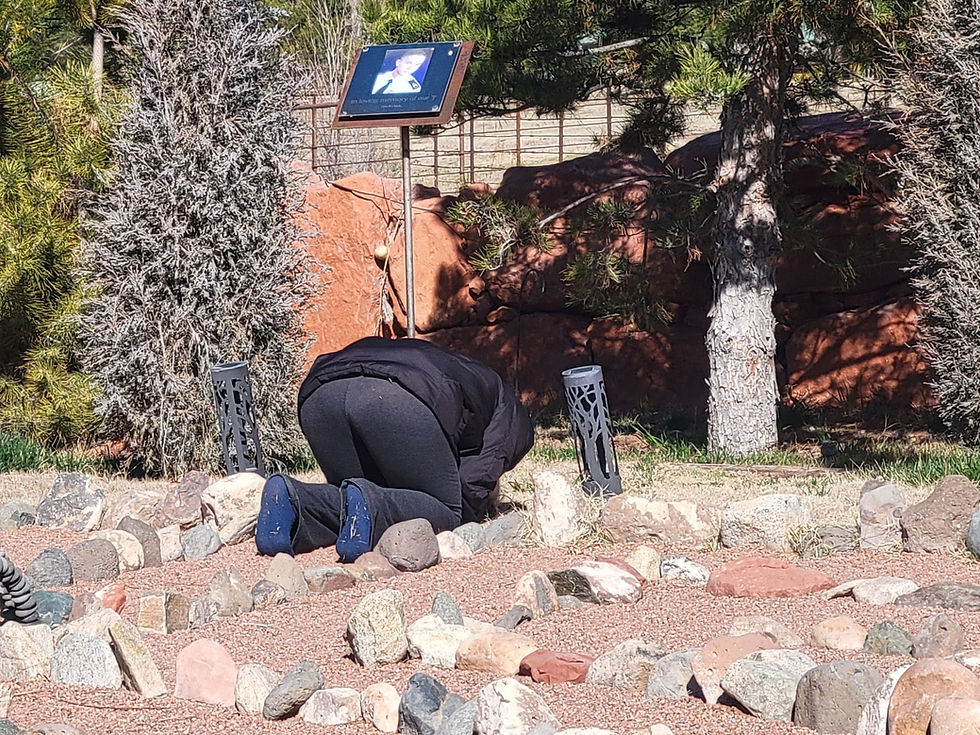Worried About Mental Health? Then Take Care of Your Emotional Health.
- Dr Jo

- Jul 18, 2020
- 3 min read

We are very focused on 'mental health' in today's world. People are lonely. People feel disconnected. Many feel unsupported from within their own communities, especially grieving people. I felt more alone in the world than ever when my baby daughter died. The loneliness, at times, felt as unbearable as the grief.
Loneliness is an emotional experience. So is grief. Anger. Disappointment. Abandonment. Fear. Rage. Terror. Ennui. Jealousy. Shame. Guilt. Envy. Resentment. Contempt. Emotions often affect our thought processes and our health. The reverse is also true. There is a relationship, a kind of dance, between emotions and our mental and physical - even our social - wellbeing.
For example, there are many studies demonstrating the ill-effects of loneliness on health outcomes and states of the mind, not just in humans but also in animals. This ties back into grief. Studies do show that the bereaved often experience poor health outcomes; few studies explore the etiology of those poor outcomes deeply.
Given all these things then, I'm so confused as to why we rarely hear about emotional wellbeing and health. So here's my Emotional Self-Care List for Grievers:
1. Surround yourself with others who embody compassion. Take a break from judgmental jerks.
2. Spend some time alone feeling what you feel. Get to know your emotions, slowly if its too scary.
3. Once you feel like you know what you feel, express yourself, whether through music, art, dance, drumming, chanting, building, or creating, find a way to externalize what your feeling deep inside. Let it move.
4. Talk to a trusted person who is an excellent listener. This could be a counselor, faith leader, friend, neighbor, family member, or an animal. Just narrate your emotional experience with someone you can trust. One of my my trusted 'persons' is my horse Chemakoh.
5. Practice creating space in your life for all your emotional experience. Notice any self-judgment. Let the self-judgment move when you feel ready.
6. Use a the natural world, a great teacher of life and loss, as a proxy to understand your emotions. For example, get out into nature and look for metaphors that mirror your own inner state: the sharp edges of rocks may represent your own sharp edges of grief. Or, a flower growing next to a cactus might symbolize the pain and beauty that sometimes live in close proximity.
7. When you're feeling overwhelmed, rest your emotional body. Put down the backpack, sit on a cool rock under the shade of a giant oak tree, and rest. When you feel ready again, begin your practice. Pick up your emotional backpack and keep practicing until your next rest.
8. Write your emotions. Focus less on what you did, who you saw, and where you went for the day. Focus more on how you felt. Notice when you're using the same words repeatedly and see if you can, even with the help of a dictionary/thesaurus, find novel ways to describe the emotions you felt that day. The writing needn't be more than a sentence or two.
9. Give grief, especially, space in your life. That may mean cordoning off time for grief; even scheduling a time and date with grief. Grief isn't your enemy. That the person you love most in the world died is the enemy. Grief is merely how you feel in response to the worst day of your life.
10. It's also okay to feel other emotions when and if they come naturally, and for many they will. Slowly, you may start to feel moments of connection. Confidence. Hopefulness. Contentment. You may laugh and have momentary joy. These emotions too are normal and so are feelings of both relief for them or even self-doubt for having them.
One thing I learned within the first year after Cheyenne's death: Taking care of my emotional health today ensures better physical and mental health tomorrow.
I hope this helps promote better caring for our emotions as grievers. And, for (yet) non grievers I hope it promotes being emotionally supportive to those in grief.
******
If you're looking for a skilled provider in your area, find a CBC provider here



Comments